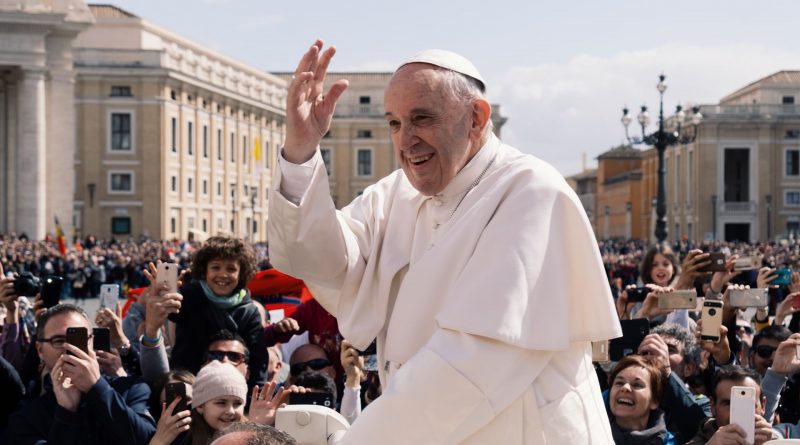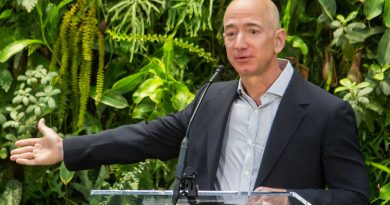Even the Pope is a Progressive
Collin Duran
Staff Writer
There have been two absolutes during Pope Francis’s tenure as head of the Catholic Church. The first is relatively unsurprising – conservative Catholics have and will remain skeptical of his progressive agenda. The second is a given – the Pope will not let his beliefs be swayed by cynics. At the beginning of October, Pope Francis released his third encyclical, a book-length essay that highlights his view of the pandemic-ridden world and how Catholic teachings should interact with the times. Despite the internal criticism the Pope has been subjected to by conservatives in the Church over his eight year tenure, Fratelli Tutti serves not only as a scathing criticism of market capitalism and xenophobia, but sheds light on the progressive direction of the Catholic Church as a whole.
The Catholic Church has historically been viewed as a conservative institute in most countries; the traditional values the faith emphasizes often clash with progressive thinkers despite the supposed “shared” commitment by progressives and the Church to uplifting the impoverished and marginalized. Pope Francis, on the other hand, has actively and explicitly taken steps to shed this reputation and portray the Church as being forward thinking, all-loving, and all-inviting. In turn, the newest encyclical touches on some of the more polarizing issues around the globe, all of which are met with liberal responses. One of the main focuses of the document is the failure of free market economic systems, of which the Pope said, “Neo-liberalism simply reproduces itself by resorting to magic theories of ‘spillover’ or ‘trickle’ — without using the name — as the only solution to societal problems…There is little appreciation of the fact that the alleged ‘spillover’ does not resolve the inequality that gives rise to new forms of violence threatening the fabric of society”, as reported by the Associated Press.
Additionally, the Pope addressed xenophobia, racism, and nationalism, writing, “Every brother or sister in need, when abandoned or ignored by the society in which I live, becomes an existential foreigner, even though born in the same country. They may be citizens with full rights, yet they are treated like foreigners in their own country. Racism is a virus that quickly mutates and, instead of disappearing, goes into hiding, and lurks in waiting” as highlighted by NPR.
While the encyclical itself has no bearing on official Church doctrine, it does indicate that the Pope is redirecting the attention of the Church away from issues like abortion and same-sex marriage and instead pushing the focus of Catholic efforts towards addressing the needs of the underprivileged. The encyclical however, in emphasizing the failures of the free market and rejection of nationalism, may inadvertently drive Catholics further apart. As reported by the Pew Research Center, Catholics in America are evenly split between the two major parties and are sharply polarized, with 47 percent identifying as Democrats and 46 percent as Republicans. With the encyclical attacking multiple pillars of conservative ideology, that polarization may grow.
However, Pope Francis is no stranger to facing conservative opposition towards his more liberal ideology. A New York Times article from September 2019 highlights the backlash the Pope has faced, citing that he has alienated some conservatives — especially in the United States — who say he is promoting an anti-American, anti-capitalist agenda and drifting from the core teachings of the Church. One thing the encyclical makes abundantly clear however, purposefully or not, is that the Pope’s progressive view of the role of the Church will not be shaken by internal opposition. As noted by Monsignor Kevin Irwin in an interview with The Washington Post, “This is a legacy document… I think this pope is a big-picture guy and he wants to make sure that this is perceived to be the Catholic Church at its best, being welcoming and inviting.”
Fratelli Tutti is more than just an update on the Pope’s outlook on the world in 2020. It serves as a roadmap for the future of Catholic ideology, one in which care for the poor and needy is placed above petty squabbling over the constitutionality of abortion or same-sex marriage. As concluded by The Guardian, the new encyclical shows that for Francis, fraternity is much more than an idea, but a necessity if the world is to become a better place. Whether or not Pope Francis’s understanding of fraternity is embraced by conservatives, he has made it clear that he is moving forward with his progressivism. I would not bet on that changing.


